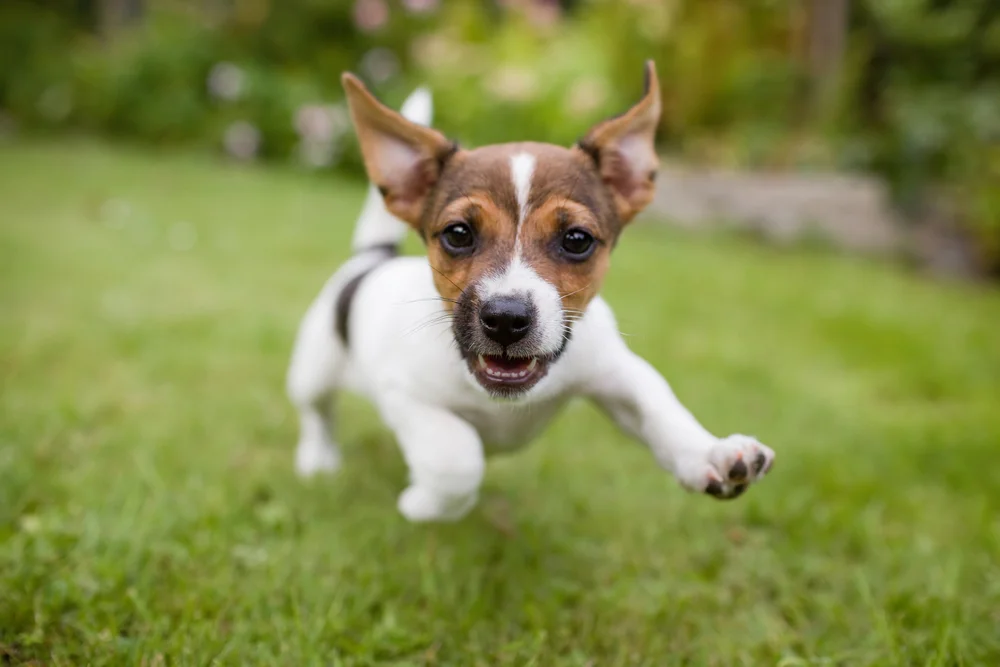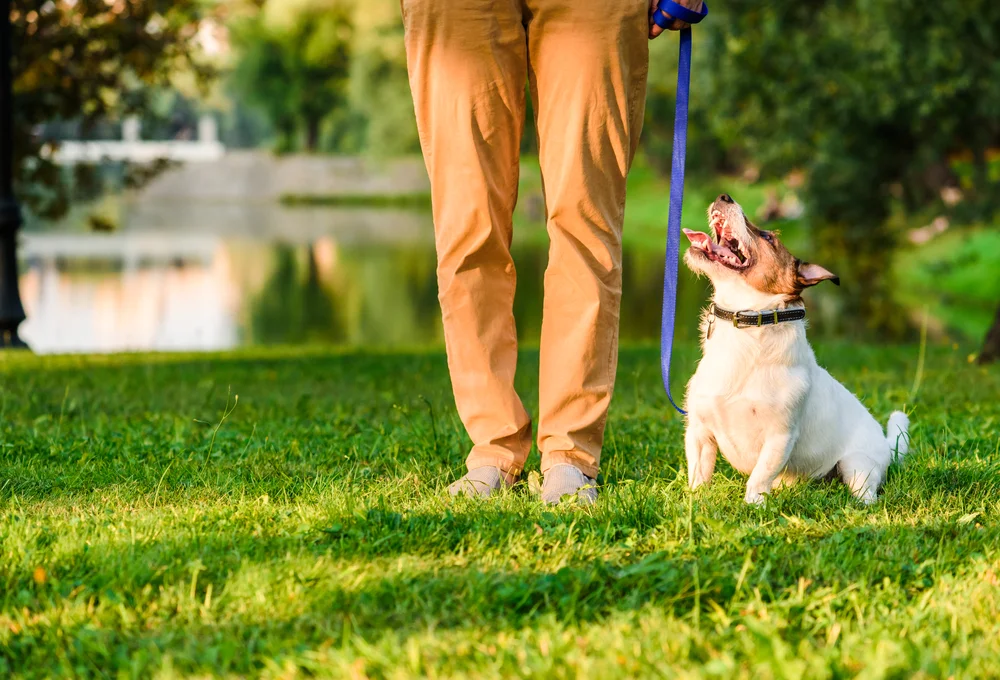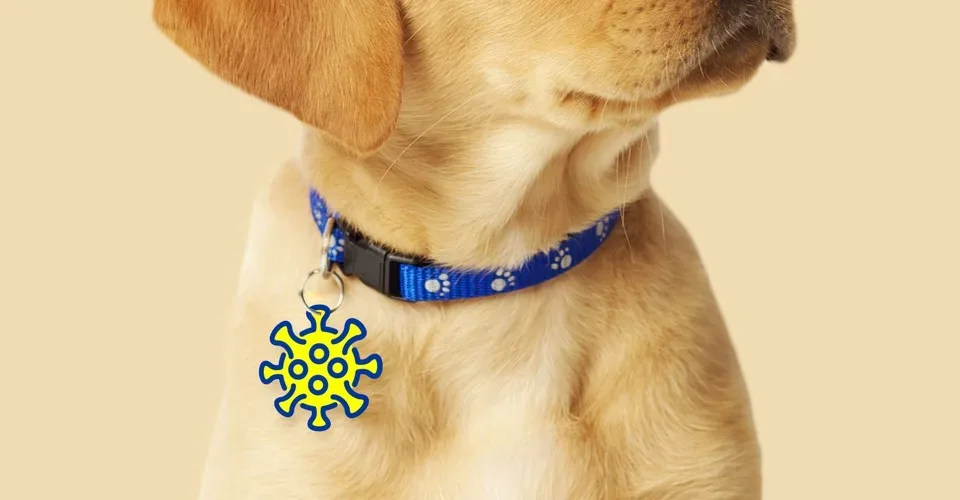Quarantine Puppy: If you got a new puppy while quarantining during the COVID-19 pandemic, your life has surely been improved for the better. But you’ve also likely known the stress that can come with a puppy.

Let’s be honest: Raising a puppy can be tough. It’s not dissimilar from raising a child, and with that comes a great deal of stress. Sometimes they won’t listen to you, there will be accidents, and every one out of ten days will be noticeably tough.
Amid the stress, it’s all worth it. You’re raising a new family member, and it’s worth every second, both good and bad.
But how do you properly raise a puppy? How do you encourage positive behavior? The best way to instill positive traits is to be positive with them at all times. What does that look like? Positivity comes in many different forms. From giving them your full attention to treating them to dog chews, here are some simple ways to raise your puppy the right way.
Use positive reinforcement.
One of the best things you can do with a puppy is to instill them with positive reinforcement. What does that mean? That can include rewarding your dog based on good behavior, such as rewarding them for listening to commands or keeping their attention on you.
Also Read: Best Weighted Vest for Dogs (2021) – Our 3 Filtered Picks!
You should also incorporate positive reinforcement when working on crate training too. Crate training is important for young dogs, as it teaches them to keep their own personal space and to become used to boarding if they ever need it. You should equally use positive reinforcement here, as it will make your dog’s crate into a positive space versus a place of discipline and punishment.
Rather than only sending your dog to their crate when they have an accident or don’t listen to you, send them in with a new toy or treat. It will evoke happy memories versus being a place they need to go to when they’ve done something wrong.
Show them some love.
You don’t need to reward your dog to instill positive reinforcement, either. It can be as simple as showing them some love, whether it’s telling them they’ve done a great job, giving them kisses on the forehead, or vigorously petting them. These simple actions show your appreciation for them without tying that behavior to food. It’s a simple way to continue forming your bond with them from an early age.
Introduce interactive games and play.
Another excellent way to imbue positive reinforcement is to play with your dog. Whether it’s hide and seek, fetch, or catch, it’s a simple way to build trust between you and your dog, where they can get a feel for your personality and vice versa. The interactiveness is a great way to show them you’re willing to take time to focus just on them. Not your phone, not work, not the television; just the two of you playing together and having fun.

Provide treats and other goodies.
A great way to reward good behavior, such as following your commands, is with treats. Healthy dog treats are your best choice, as they’ll allow you to reward your puppy while giving them something that’s healthy for them. This can be as simple as training treats, which are small, bite-sized, low-calorie treats meant for training. Bully sticks or collagen chews are also great choices. Whatever you give them, make sure to keep an eye on them while they chew on it, as some treats can be potential choking hazards.
Give them a new toy.
Who doesn’t love a new toy? Just as much as you loved getting your new PS5 while in quarantine, your puppy is going to love the latest toy to enter their life. It’s a good idea to provide them with a variety of toys to choose from, as you can find what they like, which will help you choose better toys for them down the line. This can include squeaky toys, pull ropes, stuffed animals, and balls for fetch and chewing.
Socialize with new pets and friends.
You need to socialize your puppy with other people and dogs just as you would your child. Socialization with other dogs is important, as it allows them to get their dog energy out, where they can play a little rougher, run around, and sniff some backsides. Socializing with other people is important, too, as it allows them to begin putting their trust in other people, as well as knowing to not be as wary around strangers.
Make sure to reward them for behaving well around other people and dogs. This includes giving them treats for listening to your commands and still giving you attention. It also includes showing them love, especially if they ever look anxious. It teaches them to calm down and put their faith in you.

Work with a professional.
Last, you should consider consulting with a professional trainer early on. While you might think you can do it all on your own, a professional trainer can keep an eye out for behaviors that should be worked on. Moreover, they can provide you with essential tips that can make future training sessions much easier.
Local trainers will offer different kinds of training sessions. For instance, you could take part in a group session or schedule a special 1-on-1 session. Some trainers will even hold puppy-specific training sessions, which will allow them to work alongside other puppy parents. That sort of camaraderie can help in the training process, not only for your puppy but for your sake too.
Don’t wait to start training your puppy once some poor behaviors have begun appearing. Rather, begin working with them early on to teach them well. While you’re at it, make sure to encourage positive behaviors, particularly through positive reinforcement. Your puppy will be more likely to follow your word if they have faith in you.

